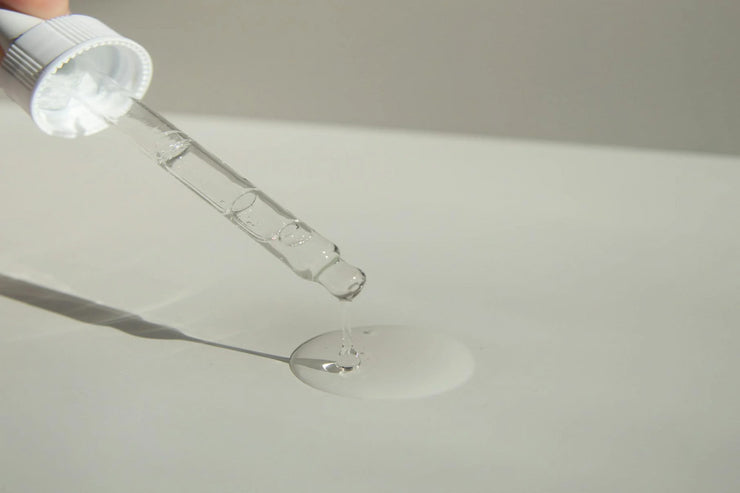CBD Strength Guide: What Strength CBD Oil Should I Get?


CBD oil is a fantastic way to get into CBD use. Straightforward to take, easy to measure and with no extra equipment needed, it’s one of the best ways to get your daily dose of CBD.
However, CBD oil can come in a wide range of strengths, with products giving support for everything from concentrations 100 mg all the way up to a whopping 6000mg.
With so many options, it can be tough to figure out the right strength of CBD oil for you. If you’ve never used an oil before, or you’re new to the CBD world entirely, this wide selection and the relatively powerful effects of CBD oil can be a bit much to engage with.
The CBD market is always evolving, so staying fully knowledgeable can be a tricky task. Whilst the question of what strength CBD oil is your best choice is ultimately one you’ll have to answer yourself, we can give you a few pointers in the right direction and tips on how to get there.
Knowing exactly what CBD oil is, how it differs from other CBD products, how it takes it effect and the best way to begin your CBD oil experience is certainly a good place to start. Read on for our guide to CBD oil strengths.
What Is In CBD Oil?
CBD oil is composed primarily of two ingredients: cannabinoids and carrier oil. Cannabinoids are compounds extracted from the hemp plant and include CBD, as well as a range of other compounds.
The presence of these other compounds allows for something called the entourage effect - a widely accepted principle that the presence of multiple cannabinoids will amplify each of their effects.
Although CBD will be the primary cannabinoid, the presence of these other cannabinoids helps to increase the effectiveness of CBD on the human endocannabinoid system. Another major cannabinoid, THC, is also often present in CBD oil.
THC is the hallucinogenic element of cannabis plants and as such is strictly controlled by the UK Home Office. Broad-spectrum CBD contains 0% THC, whilst full-spectrum CBD will contain only trace amounts.
Although THC can be helpful in assisting the entourage effect, concentrations this small typically have no other impact on the human body. Some CBD oils offer CBD isolate, which is completely free from other cannabinoids and contains just CBD.
In certain non-legal constraints, such as at some sporting events, CBD isolate may be the only permitted CBD substance. Many CBD oils will also contain a range of flavourings to improve its taste.
Alongside these will often be terpenes, non-cannabinoid extracts from the hemp plant that help to add a base of flavour and smell to the product.
Measurement & Medium
Figuring out what strength CBD oil is right for you can be affected by the way you measure your dosage. Measuring how much CBD you take is an essential part of a CBD routine, helping to ensure both the consistency and safety of your CBD experience.
Oils are somewhat unique in the CBD world, being one of the most straightforward ways to measure CBD intake. Vaped CBD vape juice and certain CBD gummies and CBD edibles, however, can vary in how much CBD is in each intake. CBD oils are sold specifically on the basis of CBD content per millilitre.
Their content, - for example, a 500mg CBD oil - will be advertised based around the amount of CBD in each bottle, usually an industry-standard 30ml. With CBD content at a consistent level throughout the oil when properly shaken, this is by far the easiest way to measure your CBD intake.
CBD oil also has one of the highest rates of bioavailability of any CBD product. Bioavailability, or biological availability, is a measurement of how effective CBD is based on how you take it.
Essentially, CBD that is digested such as an edible has a low bioavailability, because it must pass through stages of the digestive system designed specifically to remove substances from the human body.
If you take 5mg of CBD via an edible, the amount of CBD that reaches your endocannabinoid system is often less than half of that. This is true for a variety of different ways of taking CBD.
CBD oils are taken sublingually, using membranes under the tongue to directly enter the bloodstream.
This method of taking CBD has one of the highest possible bioavailability ratings. This all means that, on average, to get the same hit from CBD oil as you would from a CBD product with a lower bioavailability rating the requirements are less, letting you take both a lower concentration and smaller amount of CBD oil.
Finding Your Perfect Dose
Many variables go into determining what strength CBD oil will be right for you. Some factors that can determine your perfect dose include:
- Weight and bodily conditions
- Metabolism
- Immune response
- Lifestyle
- Frequency of use
- Preference for experience
All of these factors can determine exactly how you will react to a particular strength of CBD oil. There is no set way to figure out what strength CBD oil will suit you best, so experimentation is the best approach.
Trying a few different strengths will give you the most useful data regarding how you react to CBD, helping you to determine that golden area where you have the perfect amount, dosage and frequency of use.
To get these experiments rolling correctly, we encourage you to start small. A 500mg bottle of CBD oil is something of a starter standard. It’s strong enough to have a measurable effect on most people, but weak enough not to be overwhelming.
When you begin, we encourage you to keep notes tracking your usage, the size and frequency of dose and the effect it has on you. You’ll be able to refer back to these further down the line to figure out what got you closest to that perfect amount.
The type of CBD you’re taking, whether full spectrum, broad spectrum or CBD isolate, can also determine your reaction to it.
All of this means that your initial time with CBD may be disappointing, with doses or CBD oils that don’t quite do enough for you and that perfect level being out-of-reach for a while. Although we understand the frustration of this experience, a slow experimentation that carefully increases with time is by far the best way forward.
Whatever dose you end up settling on as the perfect amount for you, we urge you to refer to the FSA guidelines for CBD use and to not exceed their recommended limit of 70mg of CBD per day.
CBD And Drug Tests
Are you worried that CBD oil will flag up on a drug test, or how long CBD can stay in your system? Drug tests are put in place to ensure the safety of those in professional environments - and are often targeted at highly intoxicating or health-adverse substances.
Most conventional drug tests that are looking for the presence of cannabidiols will measure specifically for THC, the psychoactive compound in cannabis that gets a person ‘high’. Every reputably sourced CBD product on the UK market will contain only trace levels of THC, if at all.
With such a small concentration, the strength CBD oil you take should not make a difference. Any CBD oil, whether full or broad spectrum, is unlikely to trigger a positive result on a conventional drug test, but to be certain those who expect to be taking a drug test should avoid full spectrum products entirely.
If you’re wondering how long CBD stays in your system, 500mg of CBD can be detected in your body for up to 2 to 5 days.
Some other drug tests measure for a wider range of cannabinoids, including CBD. This could potentially trigger a positive result - however, the use of CBD is entirely legal in the UK. It is no longer a controlled substance, so you would not face criminal charges.
Certain workplaces do impose their own restrictions that may cover CBD. Athletes in particular may find that anything except CBD isolate is barred due to performance-enhancing restrictions. Be sure to check with your workplace before you take any CBD product.
Key Takeaways
- CBD’s simplicity works both ways - it’s easy to take and easy to innovate, giving you a straightforward method of dosing with a huge range to select from.
- Knowing what strength CBD oil is for you can take a little while, with experimentation and persistence giving you the best outcome.
- Whilst jumping in straight for a 6000mg oil might be tempting to someone with a history of CBD, there’s a good chance the increased bioavailability will make it far stronger than expected.
- The lower end of 500mg may seem like far too little, but it does give a solid starting point to address any issues and then gradually increase your dosage from. Ultimately the CBD is the same so, even if the strength is a little low, starting out with a weaker oil should never result in any wasted product.
- Your journey with CBD oils will probably take a few different turns, with everything from intensity to flavour and even the type of CBD potentially changing with time.
- It can be tiring and frustrating to take it slow, but without a doubt, it’s the best way forwards - the best way to figure out your ideal dose. Once you have that figured out, you’ll be getting the best CBD experience possible.
